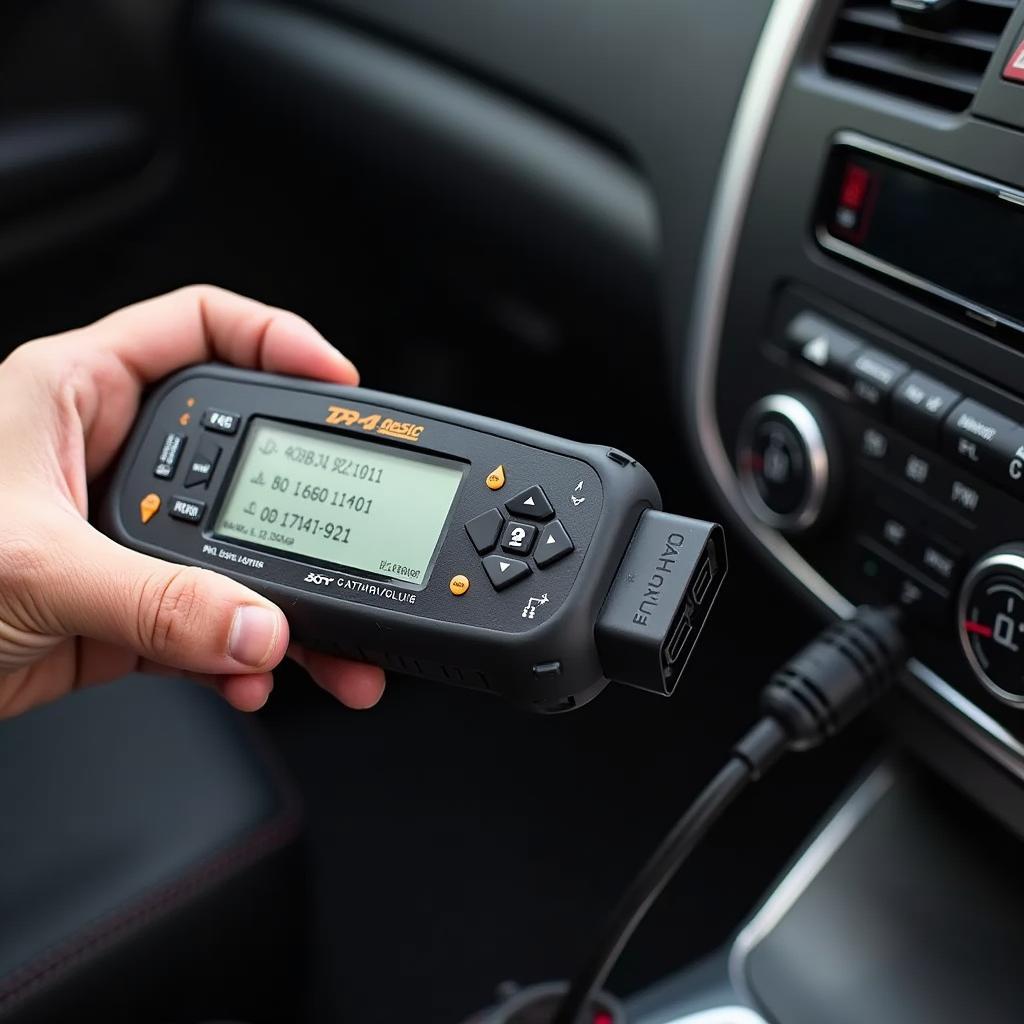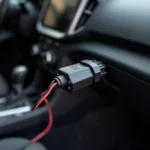Choosing the right car diagnostic tools can be a minefield, especially in the UK market where numerous options exist. Whether you’re a seasoned mechanic or a DIY enthusiast, understanding the types of tools available and their functionalities is crucial. This guide provides a comprehensive overview of UK-based car diagnostic tools to help you make informed decisions.
Understanding Car Diagnostic Tools
Before delving into specific tools, let’s clarify what car diagnostic tools are and why they’re essential.
Car diagnostic tools are devices used to interface with a vehicle’s onboard computer system, often referred to as the Engine Control Unit (ECU). This system monitors various aspects of your car’s performance, from engine timing to emissions. When an issue arises, the ECU stores a fault code, and diagnostic tools help you retrieve and interpret these codes.
Types of Car Diagnostic Tools
The UK market offers diverse car diagnostic tools catering to various needs and budgets. These tools can be broadly categorized as follows:
1. Code Readers
As the name suggests, code readers primarily retrieve and display fault codes stored in the ECU. These are generally entry-level tools ideal for DIYers and car owners who want to understand basic car problems.
Key Features:
- Read and clear basic fault codes
- Affordable and user-friendly
- Limited functionality compared to advanced tools
 Basic Code Reader
Basic Code Reader
2. OBD-II Scanners
OBD-II scanners are more advanced than code readers, offering a wider range of functionalities. They provide real-time data, such as engine RPM, coolant temperature, and oxygen sensor readings, giving you a deeper insight into your vehicle’s health.
Key Features:
- Read and clear fault codes
- Display live data streams
- Perform basic diagnostic tests
- Mid-range pricing and suitable for DIY enthusiasts and professionals
3. Professional Diagnostic Scan Tools
Professional-grade scan tools are the most comprehensive and expensive option. They offer a vast array of features, including advanced diagnostics, programming capabilities, and access to manufacturer-specific information. These are typically used by dealerships and professional mechanics.
Key Features:
- Comprehensive diagnostics and troubleshooting
- ECU programming and coding
- Access to manufacturer-specific data
- High cost and require specialized training
Factors to Consider When Choosing Car Diagnostic Tools
With so many options available, choosing the right car diagnostic tool can be overwhelming. Here are some key factors to consider:
1. Your Needs and Expertise
- DIY Enthusiast: A basic code reader or OBD-II scanner might suffice if you primarily want to diagnose simple issues and reset warning lights.
- Professional Mechanic: For in-depth diagnostics, programming, and working on various vehicle makes and models, invest in a professional-grade scan tool.
2. Vehicle Compatibility
Ensure the tool you choose is compatible with the make, model, and year of your vehicle. Some tools specialize in specific car brands, while others offer broader compatibility.
3. Software and Updates
Regular software updates are crucial for car diagnostic tools to stay up-to-date with the latest vehicle models and technologies. Choose a tool with readily available and affordable software updates.
4. Budget
Car diagnostic tools range from affordable handheld devices to expensive professional systems. Determine your budget and prioritize features that align with your needs and expertise.
Benefits of Using Car Diagnostic Tools
Investing in car diagnostic tools offers numerous benefits:
- Early Problem Detection: Identify issues early on, preventing costly repairs down the line.
- Cost Savings: Avoid unnecessary trips to the mechanic for simple diagnostics.
- Increased Vehicle Knowledge: Gain a deeper understanding of your vehicle’s health and performance.
- Improved DIY Capabilities: Empower yourself to perform basic car maintenance and repairs.
Finding Reliable UK-Based Car Diagnostic Tool Suppliers
When purchasing car diagnostic tools, it’s crucial to source them from reputable suppliers in the UK. Here are some reliable options:
- DiagFixPro: Car diagnostic software download
- Reputable Online Retailers: Amazon, eBay (ensure sellers have positive reviews)
- Automotive Tool Specialists: Look for local stores specializing in automotive tools and equipment.
Conclusion
Car diagnostic tools are invaluable for car owners and professionals alike, offering a window into your vehicle’s health. By understanding the different types of tools available and carefully considering your needs, you can make an informed decision and keep your car running smoothly.
Remember, investing in the right diagnostic tool empowers you with knowledge, saves you money, and ensures your vehicle’s optimal performance.
FAQs about Car Diagnostic Tools
1. Are car diagnostic tools universal?
No, not all car diagnostic tools are universal. While many support the standard OBD-II port found in most modern vehicles, some tools are brand-specific or require adapters for older models.
2. Can I use a car diagnostic tool on any car?
Compatibility varies depending on the tool and the car. Always check the tool’s specifications to ensure it supports your vehicle’s make, model, and year.
3. How often should I use a car diagnostic tool?
It’s recommended to scan your vehicle for fault codes at least once a year or if you experience any warning lights or unusual performance issues.
4. Can I fix a car problem solely based on a diagnostic code?
While diagnostic codes pinpoint the problem area, they shouldn’t be the sole basis for repairs. Further inspection and troubleshooting are often necessary.
5. What are some common car diagnostic software options?
Popular car diagnostic software options include OBD Auto Doctor, Torque Pro, and Carly for BMW.
Still, have questions?
Contact us through WhatsApp: +1(641)206-8880 or Email: [email protected]. We have a 24/7 customer support team ready to assist you!

